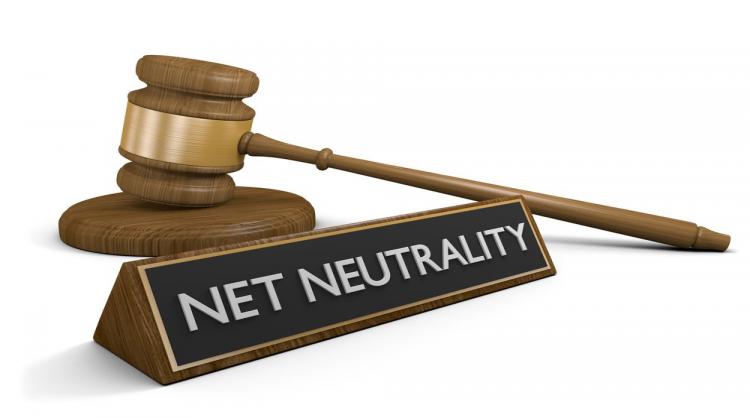The Days are Numbered for Net Neutrality and ISP Privacy Rules
December 2, 2016 | by Andrew Regitsky

We have said here many times over the last few years that the FCC was making a serious mistake in jamming rules down the throats of the Republican Commissioners on a partisan 3-2 basis. In doing so, Chairman Wheeler sadly allowed economic principles to take a back seat to fulfilling the promises made by President Obama and the constant complaints of pro-consumer groups.
This is not to say that previous Commissions were not political. They certainly were. That is because virtually every significant telecommunications decision has a political component. For example, look at the issue of universal service. While economic facts determined approximately how many USF dollars were needed to provide plain old telephone service (POTS), the commissioners made political decisions determining which companies and services were eligible for funding, which companies contributed to the fund, and how they contributed. Successive Commissions have worked together to arrive at a fund that clearly allowed the vast majority of Americans to purchase telephone service.
Unfortunately, the new FCC that will be formed under the administration of President-elect Donald Trump promises to overreach just like the current FCC, except in the opposite direction. It intends to undo many of the major decisions made by Chairman Wheeler with evidence that ideology will trump (so to speak) economics. Here is that evidence.
Trump has named three anti-regulatory advisors to his FCC landing team. First is Mark Jamison, the director of the Public Utility Research Center at the University of Florida. He actually wrote last month that the country could do without the FCC. “Many of its regulatory duties could be handled by the Federal Trade Commission and local officials because the telecom industry is competitive enough to require far less oversight.”
Trump also appointed Jeffrey Eisenach, currently a resident at the American Enterprise Institute (AEI) a conservative think tank. Eisenach recently testified before Congress stating that "Declaring the Internet a public utility is not necessary, and it will surely prove to be unwise.”
The third member of the FCC landing team is Roslyn Layton who has served as a visiting fellow at the AEI and is a strong proponent of telecom deregulation.
It is clear that these folks intend to make the FCC’s 2015 Net Neutrality Order their first victim. In an article written after the Order was released and appealed to the DC Circuit Court, Layton and Jamison wrote:
The FCC’s recent actions and the White House’s intervention is inconsistent with a stable, evidence-based regulatory approach. The lawsuits contain serious charges that the FCC exceeded its authority and violated administrative process rules. The situation distracts the FCC from its mission-critical responsibilities, such as the upcoming incentive auction to get more spectrum in the marketplace and meet consumers’ increasing demand for wireless technologies. Moreover, the unilateral approach pursued by the FCC to impose such rules forces industry and consumers to incur unnecessary litigation costs and to operate in an uncertain environment. It is also possible that the FCC’s risky path may result in net neutrality rules being struck down all together. Courts have affirmed that when imposing new regulations federal agencies need to follow procedure and conduct cost-benefit analyses, or at least an impact assessment, things that the FCC has not done. (Gainesville Sun, September 6, 2015).
At a minimum, under the direction of these advocates, the Title II classification for broadband Internet access service will be eliminated. And while the “bright line” rules of no traffic blocking or throttling are likely to continue, companies may gain the ability to prioritize Internet traffic, although hopefully they will have to provide an economic justification for such practices.
Tied to a reversal on net neutrality are the newly developed ISP privacy rules. Once the new FCC removes the Title II classification for broadband Internet access services, ISPs will no longer be common carriers and will again be regulated by the Federal Trade Commission (FTC) instead of the FCC. This will result in ISPs and edge providers living under the same privacy rules. As Layton recently wrote:
Consider the recent online privacy rulemaking, which came about only because the FCC’s Open Internet rules reclassified Internet broadband under Title II, giving FCC new authority to regulate Internet privacy. Simply stated, the FCC rulemaking was not born out of any concluded necessity. Absent are findings that the Federal Trade Commission wasn’t doing its job; the FCC has no complaints about online privacy violations; and no investigations were conducted to determine whether broadband providers had violated consumers’ privacy. All the same, the FCC pressed forward with 147 pages of misinformed, unjustified rules. Given that these rules deter market entry of broadband providers into the heavily oligopolistic online advertising market, a legal challenge is not unexpected. (Inside Sources, October 31, 2016).
It is important to point out that the new FCC will not be able to eliminate the net neutrality and ISP privacy rules on day one of a Trump administration. An agency such as the FCC is free to change its mind and reverse a previous decision, but must have a coherent argument that would pass almost certain court appeals. There is little doubt Republicans have such an argument. They contend that net neutrality hurts the economy, depressing Internet investment and costing jobs.
The new FCC can and almost certainly will stop enforcing Title II requirements on day one. Thus, zero rated and other new Internet services are likely to be introduced with few regulatory requirements.
Consumer advocates will appeal a decision to reverse net neutrality to the DC Circuit Court, where, with the Court packed with Democrats by President Obama, they are likely to win. However, the Republican FCC under the new administration will have the ultimate trump (!) card – a conservative Supreme Court. Therefore, new neutrality and the related ISP privacy rules are ultimately doomed.
By Andy Regitsky, CCMI

